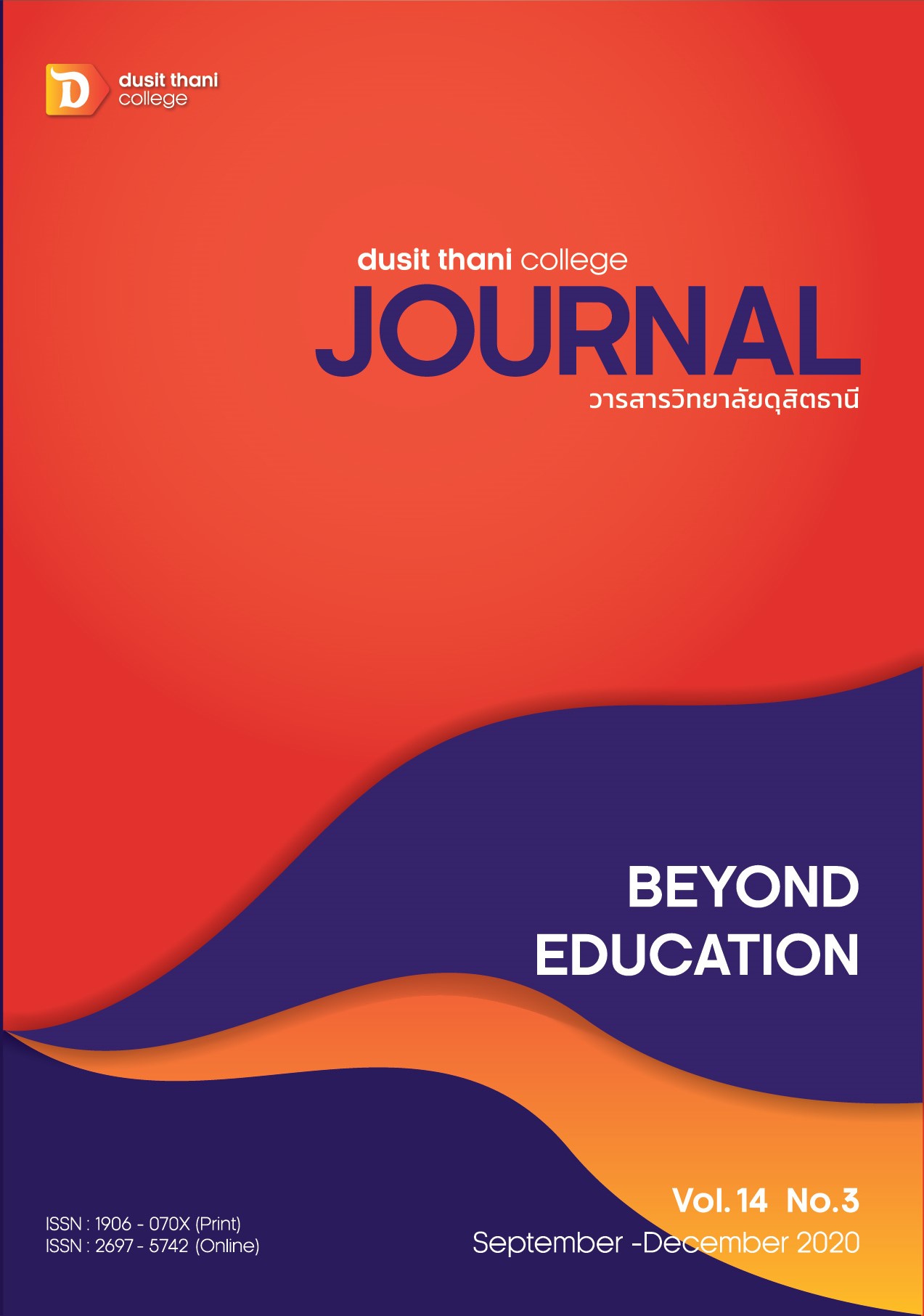Exploratory Factor Analysis of Islamic Attributes of Destination: A Case Study of Krabi Province, Thailand
Main Article Content
Abstract
Given the fact that there was still a lack of component identification of Islamic attributes of destination for non-Muslim destinations in particular to Thai context, this study therefore aims at uncovering dimensionalities underlying Islamic attributes in non-Muslim destination by Exploratory Factor Analysis (EFA) method and choosing Krabi Province, a well-known touristic city in southern Thailand, as a case study.
The investigation was conducted on 371 cases of inbound Muslim tourists by quota and purposive survey methods. The survey instrument demonstrated good validity and reliability before use with Item Objective Congruence (IOC) score for all question items greater than 0.5 and Cronbach's alpha of 0.901.
The result is found that the factor structure of Islamic attributes of destination is composed of four distinct principal components namely hotel and restaurant hospitality, worship facilities and food, public places, and entertainment and art. Total variance captured by these components accounts for 64.837%. The finding also indicates acceptable appropriateness of the indicators used for factor structure detection illustrated by Kaiser-Meyer-Olkin (KMO) of 0.728 and significant Bartlett's test of sphericity.
Article Details
Article Screening Policy
- All research and academic articles to be published must be considered and screened by three peer reviews in the relevant field / article.
- All articles, texts, illustrations and tables published in the journal are the personal opinions of the authors. Editors don't always have to agree. And no responsibility whatsoever is the sole responsibility of the author.
- The articles to be published must never be published. Where did you first publish? And not in the consideration of other journals If the audit found that there has been a duplicate publication It is the sole responsibility of the author.
- Any article that the reader sees as being plagiarized or impersonated without reference. Or mislead the work of the author Please let the journal editor know it will be your greatest blessing.
References
Construct development and measurement validation, and their impact on tourist satisfaction. International Journal of Tourism Research, 16(6), 556-564.
Battour, M., & Ismail, M. N. (2014). The role of destination attributes in Islamic tourism. Paper presented at the SHS web of conferences.
Battour, M., Ismail, M. N., & Battor, M. (2011). The impact of destination attributes on Muslim tourist's choice. International Journal of Tourism Research, 13(6), 527-540.
Battour, M., Ismail, M. N., Battor, M., & Awais, M. (2017). Islamic tourism: an empirical examination of travel motivation and satisfaction in Malaysia. Current Issues in Tourism, 20(1), 50-67.
Bazazo, I., Elyas, T., Awawdeh, L., Faroun, M., & Qawasmeh, S. a. (2017). The Impact of Islamic Attributes of Destination on Destination Loyalty via the Mediating Effect of Tourist Satisfaction. International Journal of Business Administration, 8(4), 65.
Department of Tourism. (2017). Tourist statistic 2016 (southern region).
Retrieved from https://www.mots.go.th/more_news.php?cid=438&filename=index
Duman, T. (2012). The value of Islamic tourism: Perspectives from the Turkish experience. Islam and Civilisational Renewal (ICR), 3(4).
Eid, R. (2015). Integrating Muslim customer perceived value, satisfaction, loyalty and retention in the tourism industry: An empirical study. International Journal of Tourism Research, 17(3), 249-260.
Eid, R., & El-Gohary, H. (2015a). Muslim tourist perceived value in the hospitality and tourism industry. Journal of Travel Research, 54(6), 774-787.
Eid, R., & El-Gohary, H. (2015b). The role of Islamic religiosity on the relationship between perceived value and tourist satisfaction. Tourism Management, 46, 477-488.
Farahdel, F. (2011). Islamic attributes and its impact on Muslim tourists' satisfaction:
a study of Iran. University of Malaya.
Islamic Tourism Centre. (2018). Frequently asked questions.
Retrieved from http://www.itc.gov.my/corporate/faq/
Khan, F., & Callanan, M. (2017). The “Halalification” of tourism. Journal of Islamic Marketing, 8(4), 558-577.
Mastercard-CrescentRating. (2018). Global Muslim Travel Index 2018. Singapore: Mastercard-Crescentrating.
Nassar, M. A., Mostafa, M. M., & Reisinger, Y. (2015). Factors influencing travel to Islamic destinations: an empirical analysis of Kuwaiti nationals. International Journal of Culture, Tourism and Hospitality Research, 9(1), 36-53.
Rahman, M. K. (2014). Motivating factors of Islamic tourist’s destination loyalty:
An empirical Investigation in Malaysia. Journal of Tourism and Hospitality Management, 2(1), 63-77.


